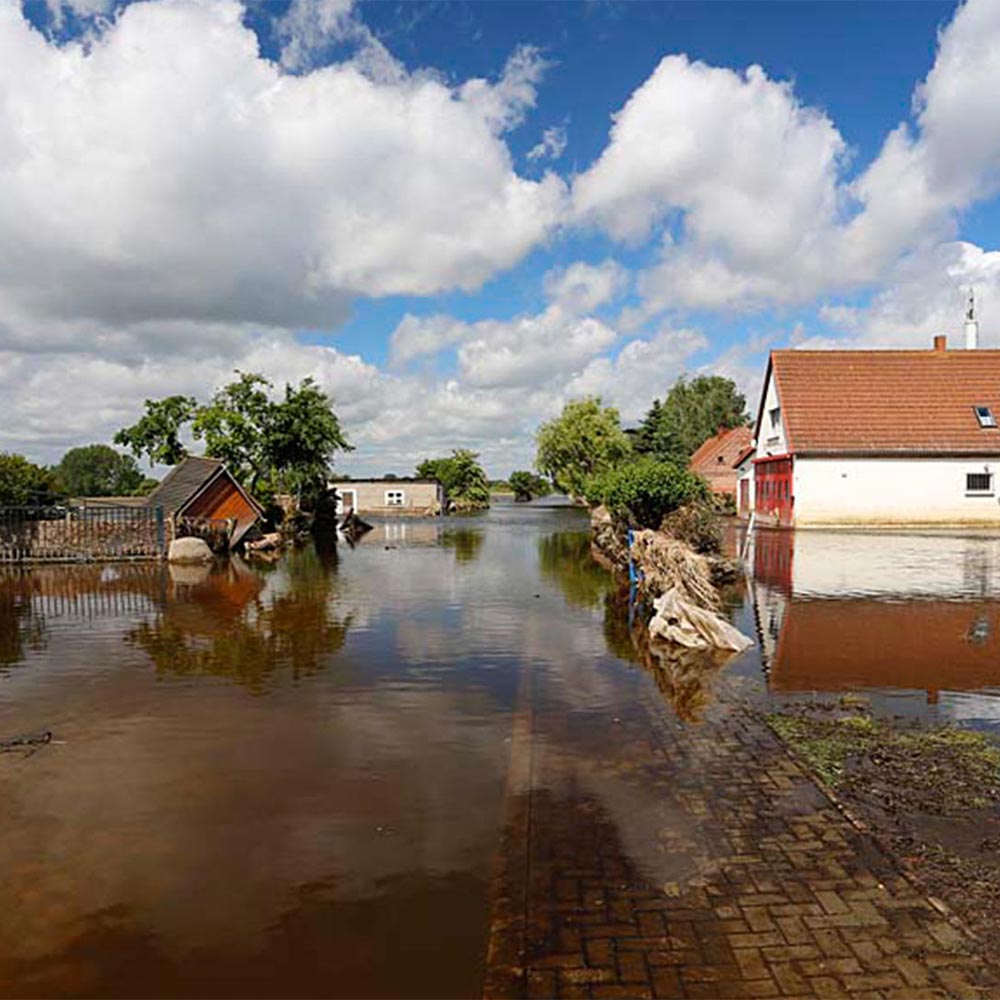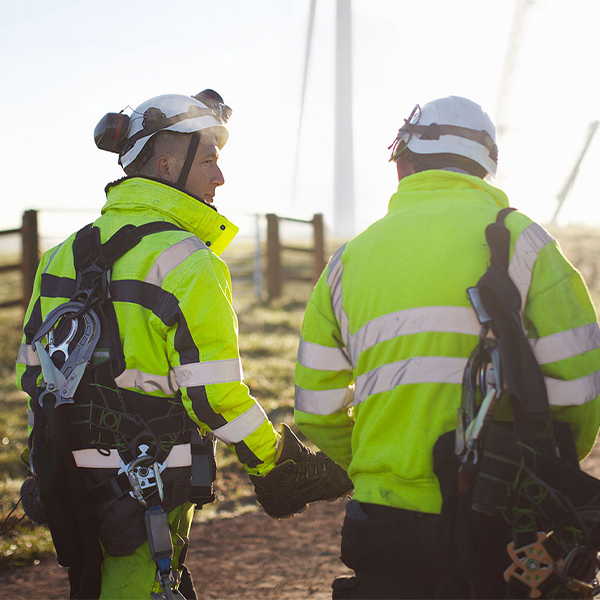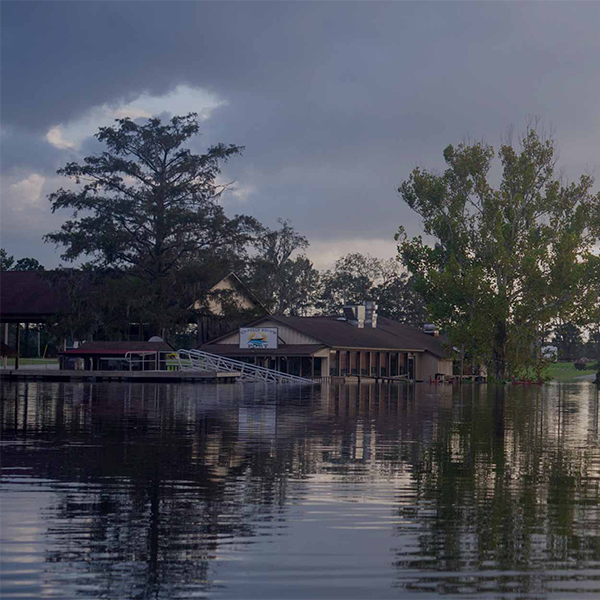
Adapting to climate change
Resilience is key in a world of increasing risk
Climate change mitigation is vital to curb the damage we’re doing to the planet. Currently, we are likely on a path to an above 2°C future, rather than the desired 1.5°C. But, even if the global community successfully meets the emissions targets outlined in the 2015 Paris Agreement, communities will still feel the increasingly adverse impacts of climate change, including extreme precipitation and extreme heat events and flooding for decades to come. This is why climate change adaptation is an imperative. We must adapt to the current and future expected events associated with a changing climate. This means anticipating the negative effects of climate change and better managing their consequences.
Climate change adaptation, like mitigation, is everyone’s business.
Our ambition is to enhance the resilience of the natural world, our customers, our business and the communities we serve to the impacts of climate change.
Climate Resilience by Zurich Resilience Solutions
Through our Climate Resilience offering, we provide solutions that help customers build resilience and reduce losses caused by the adverse impacts of climate change.
“When we talk about climate change,” explains Amar Rahman, Global Head of Climate Resilience at Zurich Insurance Group (Zurich), “we define the risk it presents in three dimensions: hazard, exposure and controls. People usually focus on the hazard: there’s more rain, more wind, more heat. But we develop models and scenarios to help them understand their exposure to those hazards, to identify their vulnerabilities or pain points. Finally, we assess the controls: what can you do to reduce and manage the impact of climate change right now? Climate resilience is about managing those three factors with the tools we have, and not waiting for new data or government regulation before you act. Because if you wait, it will be too late to develop solutions.”
Companies that identify and act on climate risks now will have a better chance to not only survive but to thrive in a new net-zero world.

Addressing the growing climate crisis
2023 was the hottest year on record, and the frequency and intensity of storms, flash floods and other climate-induced hazards continue to increase. The is still a great potential for climate adaptation efforts, including investments in preparedness and risk reductions, to reduce the impact on climate-vulnerable communities..
By working in collaboration with affected communities long-term, sustainable resilience to floods and other climate hazards can be aimed to be realized.
The Zurich Climate Resilience Alliance works together with communities to analyze current levels of resilience and identify the most appropriate solutions to climate hazards. Each Alliance program is therefore different, informed chiefly by the needs of the communities - but all aim to realize the Alliance’s vision of a world where communities are resilient to climate hazards, enabling them to thrive. Knowledge gained from each program is shared with Alliance partners and others, to promote good practice and identify opportunities to scale up successful interventions.
Systems change will be key to delivering impact at scale. Systems change is the process of intentionally altering the interconnected components and dynamics of a system so that it better supports vulnerable people, to build their resilience to climate hazards.
The Zurich Climate Resilience Alliance aims to address system-level barriers that constrain resilience-building, to deliver impact at scale and unlock new pathways to transformative change.
The Zurich Climate Resilience Alliance is a collaboration between humanitarian, NGO, research and private sector partners, working to build resilience to climate hazards in rural and urban contexts. Formerly the Zurich Flood Resilience Alliance, we have over a decade of experience in generating evidence of communities’ current levels of climate resilience and identifying appropriate solutions.
Linda Freiner, Chief Sustainability Officer, Zurich Insurance Group, said:
"I am delighted to see this evolution. Over the past decade, Alliance members have made significant strides in addressing the climate crisis, showcasing the power of collaboration and innovation. However, our work is far from over. The urgency of the climate crisis requires that we accelerate our collective efforts, leveraging the lessons learned and the collaborations forged to drive even greater impact. The next decade is crucial, and I am confident that together, we can achieve the ambitious goals necessary to secure a sustainable future for generations to come."

We really need to be able to anticipate what is going to happen in the future, and the statistics of the past are no longer valid.

* The Z Zurich Foundation is a Swiss-based charitable foundation established by members of the Group. It is the main vehicle by which Zurich Insurance Group delivers on its global community investment strategy. All members of the Zurich Climate Resilience Alliance, with the exception of Zurich Insurance Company Ltd, are funded by the Z Zurich Foundation.
Key flood statistics
Floods impact more than 635 million people every year1
An estimated USD 651 billion in flood damages occurred globally from 2000 to 20192
1.65 billion people were affected by floods between 2000 and 20193
Every U.S. dollar invested in flood prevention saves, on average, five U.S. dollars in future losses4
1 EM-DAT, 2020.
2 https://www.nature.com/articles/s41586-021-03695-w#ref-CR1
3 CRED, UNDRR. Human Cost of Disasters. An Overview of the last 20 years: 2000–2019. https://reliefweb.int/report/world/humancost-disasters-overview-last-20-years-2000-2019 (UNDRR, 2020) ]
4 https://pure.iiasa.ac.at/id/eprint/11193/



